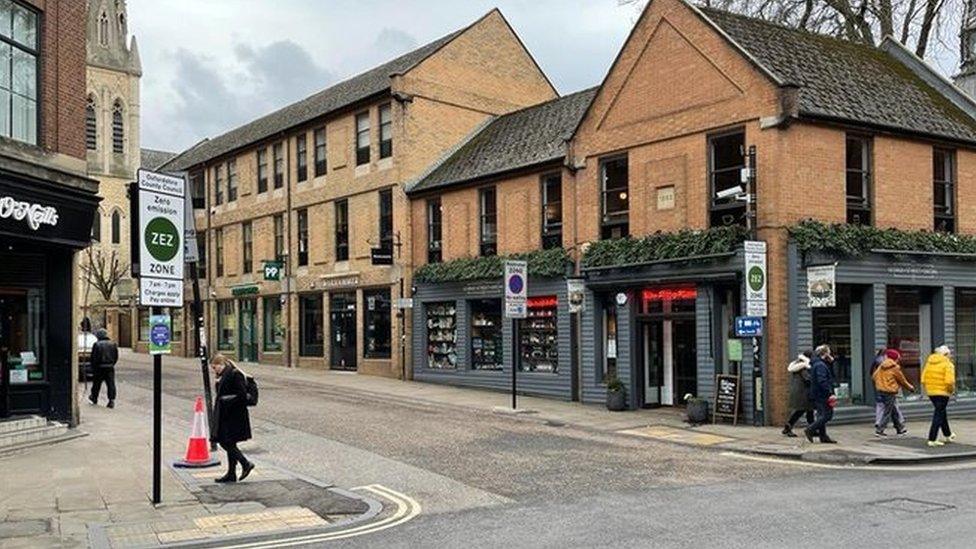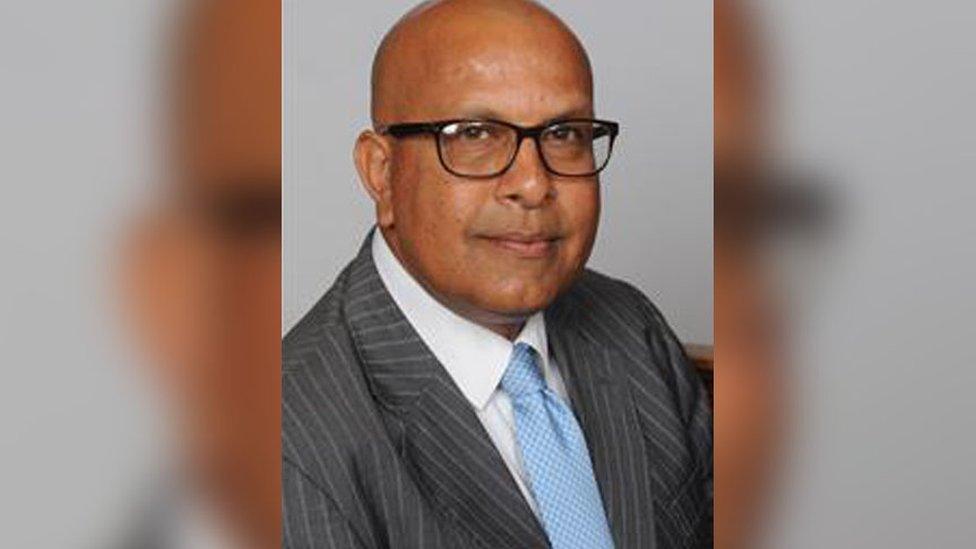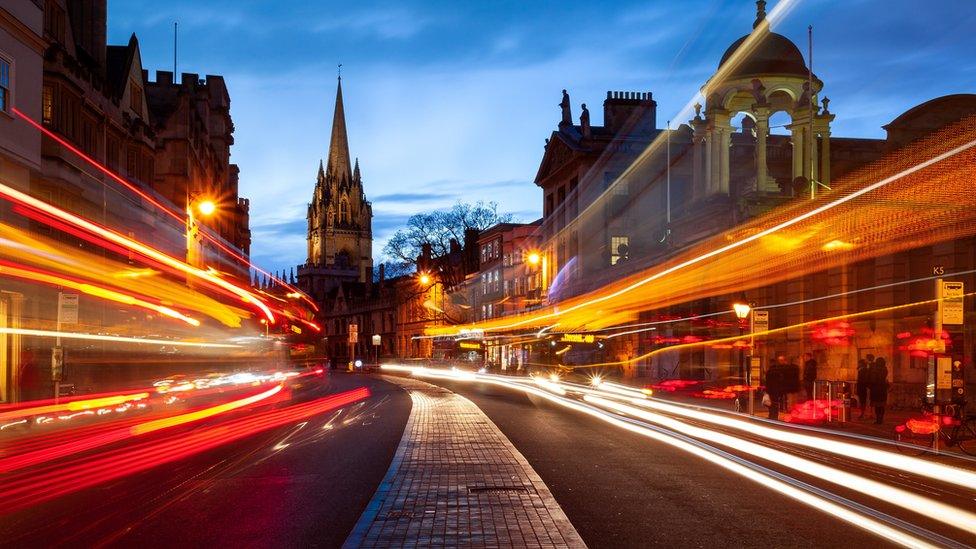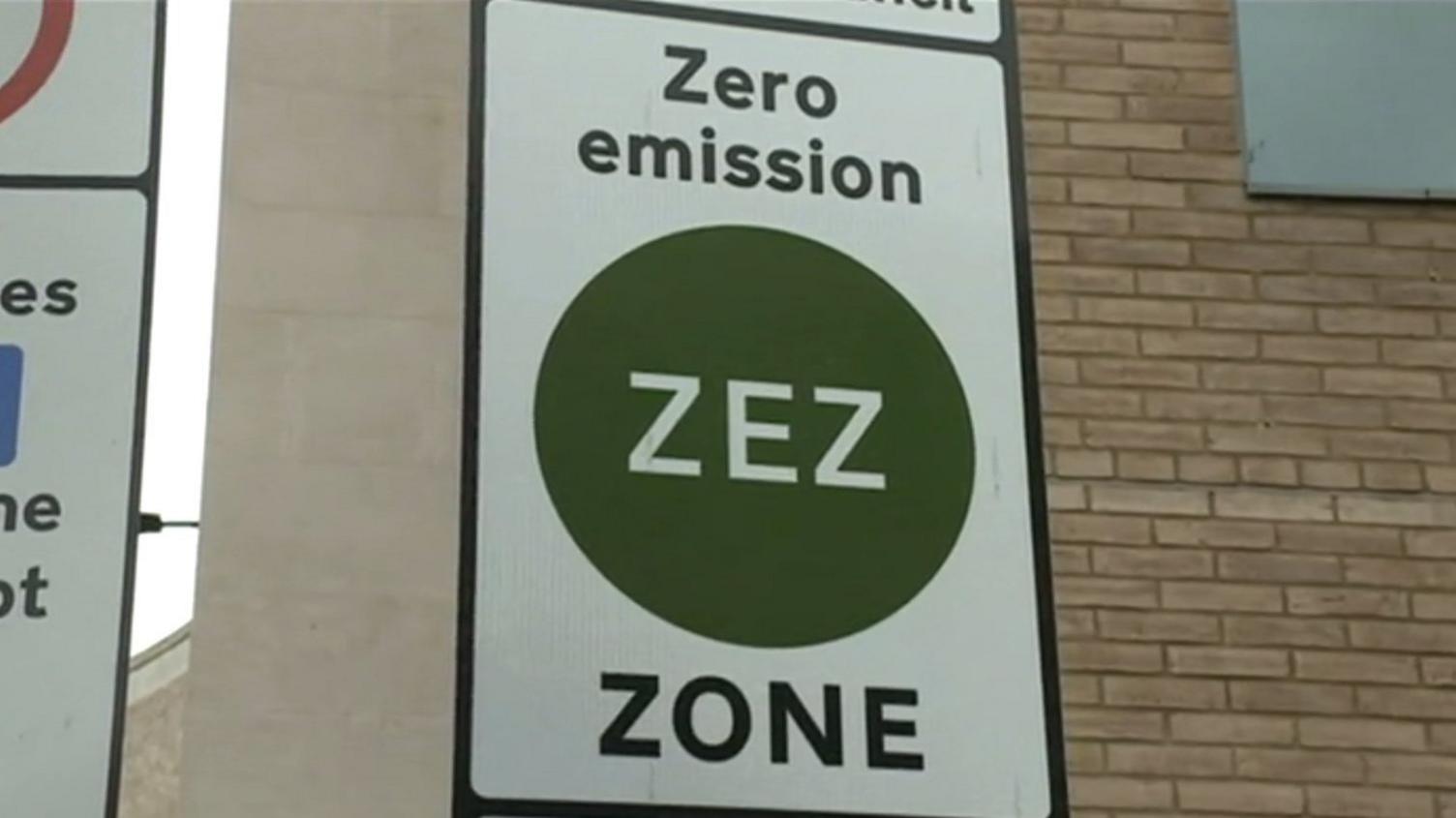Oxford's zero emission zone faces hypocrisy claim
- Published

The zero emission zone (ZEZ) pilot was launched in Oxford in 2022
Oxfordshire County Council has been accused of hypocrisy over its zero emission zone (ZEZ) expansion plans after the scheme's cost was revealed.
The proposed project in Oxford, which involves charging non-electric vehicles with the aim of improving air quality, would cost about £5.8m.
But Independent councillor Sajjad Malik said in reality it was a "congestion charge".
Council cabinet member Judy Roberts said the plans had not been finalised.
A small pilot area has been in place for nine streets in the city since February 2022 but the final rollout will involve most of the city centre.
Mr Malik, an Independent Cowley ward councillor, said: "You can have a big van that smokes like hell and still pay the council to drive it.
"This has been rebranded into a zero emission zone but in reality it is a congestion charge.
"People have already been turned away from Oxford and now there will be more empty shops in the city centre.
"It will be even more detrimental to businesses."

Sajjad Malik believes the expansion will be detrimental to businesses
Mr Malik described the scheme's ethos as being "as long as you can pay us you can drive any vehicle".
He also claimed there was hypocrisy in the city not having buses that would be fully compliant.
Mr Malik said: "The council plans for its buses to be fully electric by 2030.
"You can only preach what you practice."
The current ZEZ scheme is being delivered by the county council, though Oxford City Council previously oversaw it.
City bus fleets are owned by private companies but the county council deals with the contracts.
Ms Roberts, cabinet member for development strategy, said: "The zero emission zone in Oxford is all about making our city cleaner and healthier.
"The proposals are draft at this stage and will be informed by our conversations with businesses and residents especially, as well as traffic and air quality modelling and a business impact assessment."
Green Party city councillor Emily Kerr added: "The existing pilot ZEZ has already been shown to improve emissions in the city centre, contributing to the overall 8.3% improvement in Oxford's notoriously bad air quality last year."
If approved in spring, the scheme would be rolled out in 2026.
The city council has been contacted for comment.

Follow BBC South on Facebook, external, X, external, or Instagram, external. Send your story ideas to south.newsonline@bbc.co.uk or via WhatsApp on 0808 100 2240.
Related topics
- Published16 February 2024

- Published1 September 2022
